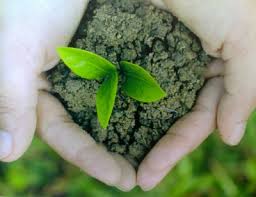
Nature of work
A geoscientist is involved in the discovery, exploration and development of natural resources such as gas, oil and water.He/she interprets geophysical, geochemical and geological data to develop models of the subsurface of the earth, with the aim of discovering commercially viable and exploitable reserves of natural resources, such as oil and gas.
Geoscientist provides the foundation for the exploration and production of natural resources. He/she is also involved in the production of reserves and may provide specialist advice for engineering projects.
Geoscientist's work in exploration deal with a larger number of sites and a wide spread of data and also use satellite imagery and gravity and magnetic surveys to evaluate a whole basin. In production, geoscientists concentrate on sites that are already operational, making assessments on the basis of well core and well fluid samples.
Environment of work
Working hours vary depending on the sector and employer. Some geoscientists may be based in offices or laboratories, where hours will be regular, e.g. 9am to 5pm. Other work requires unsocial, irregular and long hours. Geoscientist may need to be contactable to assess data and assist the well site geologist in making decisions about drilling, which takes place 24 hours a day. Physical conditions may sometimes be tough and demanding. Geoscientists are predominantly land-based, but make occasional visits to rigs to collect data directly and carry out quality control checks on the sampling procedures. Self-employment and freelance work are sometimes possible. Freelancers may be able to get interpreting contracts. It is also possible to establish his/her own consultancy after considerable experience in a particular field, such as base metal exploration or sedimentology. Professional life
Relatively early positions of responsibility for geoscientist would be as team leader for an asset, such as an individual oil field or development prospect, coordinating the work of geologists and geophysicists. It is fairly easy to broaden his/her knowledge by moving between exploration and production - the role of the geoscientist is similar in both contexts. Depending on the company, career progression may lead to managerial or technical specialist positions. Geoscientists in oil companies may move into senior positions involving professional and technical management. It is also possible to move into consultancy. monthly salary typically starts from 350000 SYP Getting the job
In order to find an entry-level research position as a geoscientist, one should have a master's degree in geology or earth science. There are very few entry-level jobs available for geoscientists with only bachelor's degrees.Those who want to become geoscientists should become experienced with computer modeling, data analysis and integration, digital mapping, remote sensing and Geographic Information Systems (GIS).
As geoscience is a specialized career further qualifications are usually required. This can include an MSc or an MGeol (these are four-year first degrees), or a PhD in a relevant area of geoscience (such as geophysics, petroleum geology or sedimentology).
Skills
Candidates need to show evidence of the following:- The ability to work in multidisciplinary teams, especially with engineers in production, where it is helpful to have some basic knowledge about specialities outside organizations.
- A strong technical grounding and an understanding or knowledge of industry-specific techniques (more often learnt on the job).
- A good understanding of earth science concepts and the ability to apply them to new situations.
- A deeper understanding of several specific fields, such as stratigraphy or seismic interpretation.
- The ability to learn quickly.
- Good IT skills.
- Excellent communication and interpersonal skills.
Sources and references
For further information about this career you can visit the following websites: geology.ahlamontada.net, Arab Geologistes Association
geoatlas.goodearths.com, Arab Geologists Forum.
www.geolsoc.org.uk/geoscientist, Fellowship magazine of the Geological Society
www.awg.org Association for Women Geoscientist
